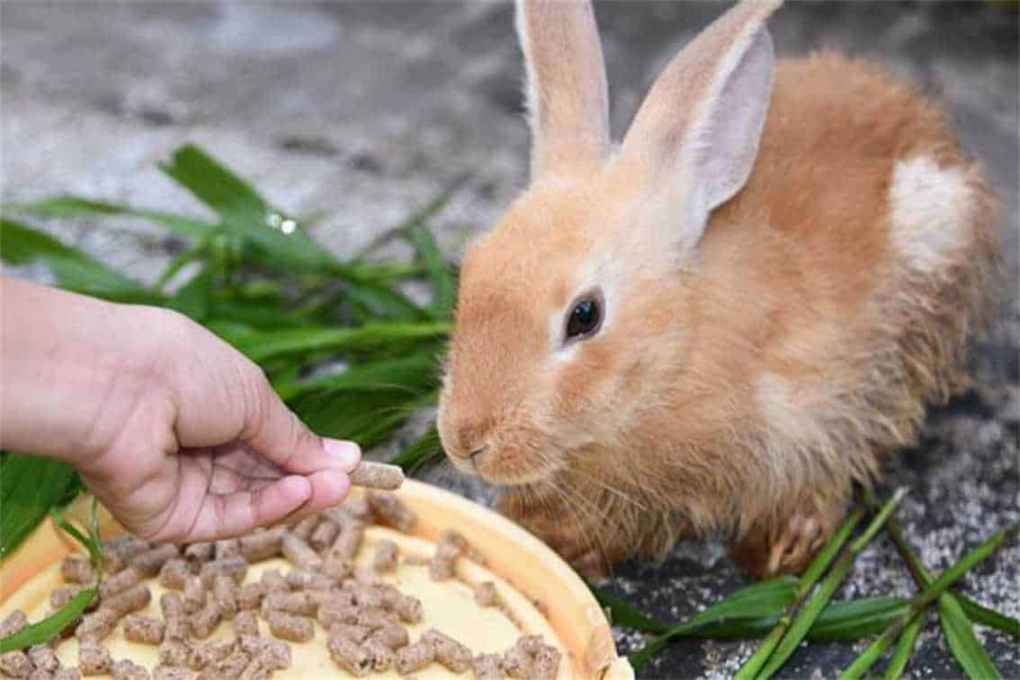How Often Do You Feed Rabbits?
Rabbits are adorable and lovable pets that require proper care and nutrition to thrive. One of the essential aspects of taking care of rabbits is feeding them a balanced diet regularly. However, many rabbit owners often wonder how often they should feed their furry friends. In this article, we will discuss the feeding schedule for rabbits and provide some useful tips to ensure their well-being.

Feeding Schedule for Rabbits
When it comes to feeding rabbits, it is crucial to establish a consistent schedule to maintain their digestive health and prevent any potential health issues. Here is a general guideline for feeding rabbits:
- Hay: Rabbits should have an unlimited supply of good-quality hay at all times. Hay is an essential part of a rabbit’s diet as it provides the necessary fiber for healthy digestion. Ensure the hay is fresh, free from mold, and stored in a dry place.
- Pellets: High-quality rabbit pellets should be provided to rabbits in limited quantities. Adult rabbits should be given about 1/4 cup of pellets per 6 pounds of body weight per day. However, it is essential to consult with a veterinarian to determine the appropriate amount for your specific rabbit.
- Fresh Vegetables: Rabbits should be given fresh vegetables as part of their daily diet. Offer a variety of vegetables such as leafy greens, carrots, bell peppers, and broccoli. Introduce new vegetables gradually and monitor your rabbit’s reaction.
- Fresh Water: Make sure your rabbit always has access to fresh water. Use a water bottle or a heavy ceramic bowl to provide water, and replenish it daily.
It is important to note that the feeding schedule may vary depending on the age, weight, and overall health of your rabbit. Always consult with a veterinarian to ensure you are providing the right amount and type of food for your furry friend.
Tips for Feeding Rabbits
Feeding rabbits goes beyond just providing them with food. Here are some additional tips to ensure a healthy and enjoyable feeding experience:
- Monitor portion sizes: It is crucial to monitor the portion sizes of pellets and vegetables to prevent overfeeding. Obesity can lead to various health issues in rabbits, so be mindful of the amounts you offer.
- Introduce new foods gradually: When introducing new vegetables or treats to your rabbit’s diet, do so gradually. This allows their digestive system to adjust and minimizes the risk of digestive upset.
- Offer a variety of vegetables: Providing a variety of vegetables ensures that your rabbit receives a wide range of nutrients. This helps maintain their overall health and prevents boredom.
- Inspect food quality: Always check the quality of hay, pellets, and vegetables before offering them to your rabbit. Ensure they are fresh, free from mold, and suitable for consumption.
- Observe eating habits: Pay attention to your rabbit’s eating habits. If you notice a sudden decrease in appetite or any signs of illness, consult with a veterinarian immediately.
Feeding rabbits requires careful attention to their dietary needs. A balanced diet consisting of fresh hay, pellets, vegetables, and water is essential for their overall health and well-being.
Frequently Asked Questions (FAQs)
1. How often should I feed my rabbit?
Adult rabbits should have access to hay at all times, and their pellets can be provided once a day. Fresh vegetables should be offered daily, but portion sizes should be monitored to prevent overfeeding.
2. Can rabbits eat fruits?
Yes, rabbits can eat fruits, but they should be given in moderation as treats. Fruits are high in natural sugars, so excessive consumption can lead to digestive issues and obesity. Stick to small pieces and offer a variety of fruits occasionally.
3. Should I give my rabbit unlimited pellets?
No, rabbits should not have unlimited access to pellets. Pellets should be given in limited quantities as they are high in calories. Consult with a veterinarian to determine the appropriate amount based on your rabbit’s weight and overall health.
4. Can rabbits drink any water?
It is best to provide rabbits with fresh, clean water. Avoid giving them flavored or sugary water, as it can upset their digestive system. Use a water bottle or a heavy ceramic bowl to ensure they have access to water at all times.
Feeding rabbits the right amount and type of food is crucial for their well-being. By following a consistent feeding schedule, monitoring portion sizes, and providing a balanced diet, you can ensure that your rabbit remains healthy and happy.
Related Articles…
Copyright Notice:
All images featured on this site are sourced from the internet, copyrights belong to respective owners. Should you own any image and require it to be removed, please contact us.